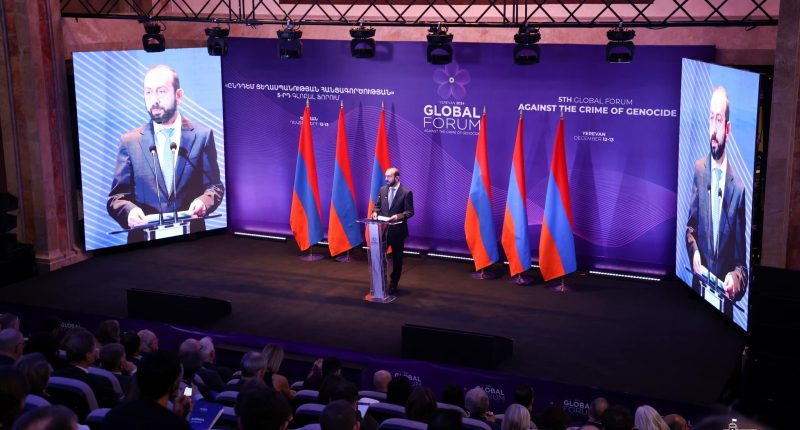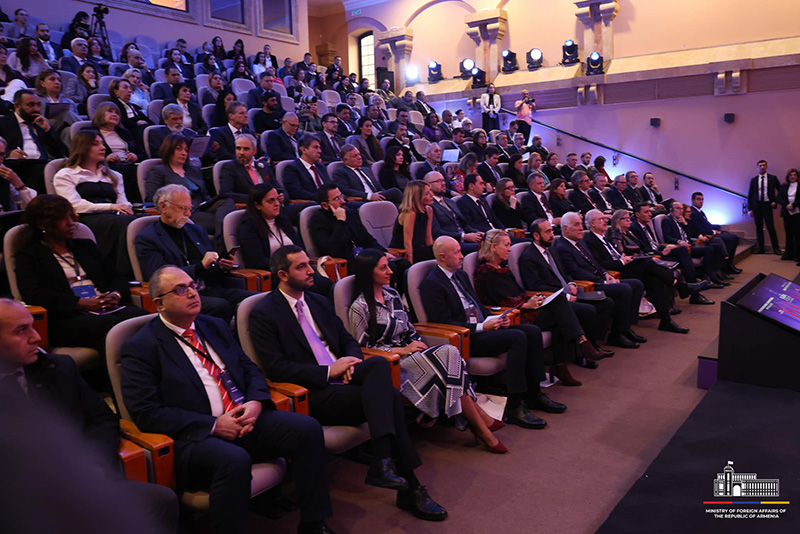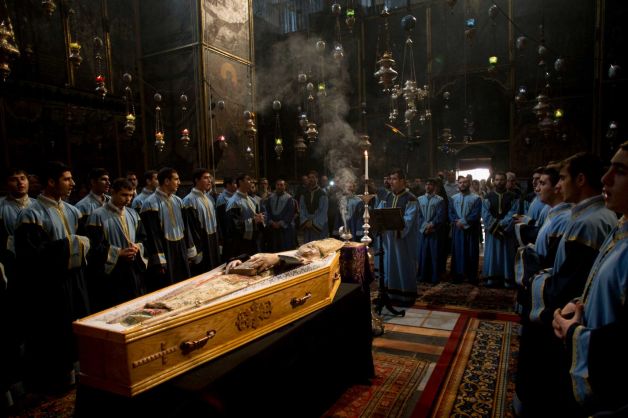YEREVAN – The international community has been unable to prevent atrocities and crimes of genocide against humanity, often only addressing these issues after they become established facts, Armenian Foreign Minister Ararat Mirzoyan stated during the 5th Global Forum Against the Crime of Genocide in Yerevan.
“We have witnessed this pattern not only in our region with the Armenian Genocide over 110 years ago but also just last year, when it became evident to the world that sufficient risk factors existed to lead to irreversible consequences,” Minister Mirzoyan remarked.
“Unfortunately, we were unable to prevent these events, and today we face their irreversible consequences. This is yet another instance where the response of international structures failed to match the gravity of the risk factors and the situation on the ground. The most significant risk factor—hatred—eventually escalated from hate speech into actual crimes,” the Foreign Minister noted.
“The example of the Armenians applies universally to the circumstances and causes of all other genocides and mass crimes, as the foundations, impulses, and risk factors for these crimes are often the same,” he added.
The Armenian Foreign Minister stressed that the current global landscape and the alarming trends of genocidal risks demand more effective strategies to save lives. He called for a transformation of the “heavy bureaucratic machinery” into a system that is more sensitive and flexible—not only in responding effectively but also in ensuring equal treatment for all.
“Ensuring the protection of national, racial, and ethnic groups must remain a priority for the international human rights system. At the same time, it is clear that success in this area requires close international cooperation, including among UN structures, regional organizations, member states, non-governmental organizations, and other actors. Achieving this cooperation has long become a shared responsibility. Members of the UN Security Council, major regional actors, and even smaller states—many of which play pioneering roles in advancing prevention agendas—all have unique contributions to make,” Minister Mirzoyan asserted.
He also highlighted Armenia’s leadership in promoting genocide prevention. “One of the main themes of the March 2024 UN Human Rights Council resolution on the ‘Prevention of Genocide,’ sponsored by Armenia, was the importance of early prevention and timely responses to such atrocities,” Mirzoyan said.
According to him, while the resolution has been amended substantively over time, it reflects a persistent lack of effectiveness in the international community’s efforts—or, as he candidly put it, a “collective helplessness” in halting genocides and atrocities against humanity.
Minister Mirzoyan concluded by emphasizing the ongoing challenges. “In recent years, particularly in regions experiencing armed conflicts, the world has witnessed genocidal actions and warning signs pointing to the emergence of new crimes. The international community must respond decisively to these alarming developments,” he stated.











